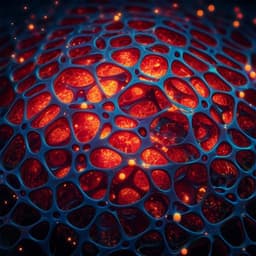
Engineering and Technology
Near-field thermophotovoltaics for efficient heat to electricity conversion at high power density
R. Mittapally, B. Lee, et al.
Discover groundbreaking advances in near-field thermophotovoltaics with record power densities reaching ~5 kW/m² and 6.8% efficiency, as researched by Rohith Mittapally and colleagues at the University of Michigan. This innovative study pushes the limits of thermal energy harvesting using cutting-edge emitters and custom PV cells.
Related Publications
Explore these studies to deepen your understanding of the subject.







